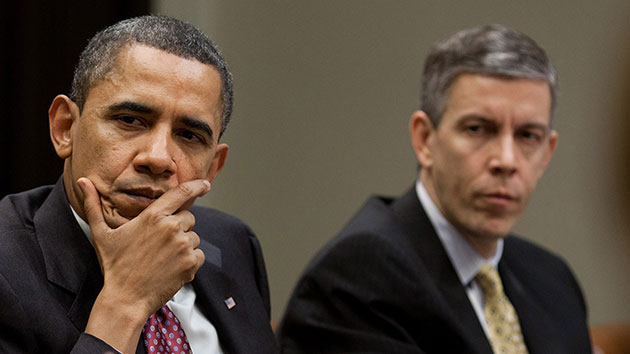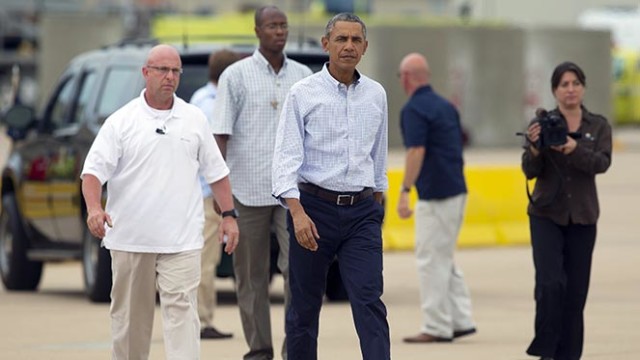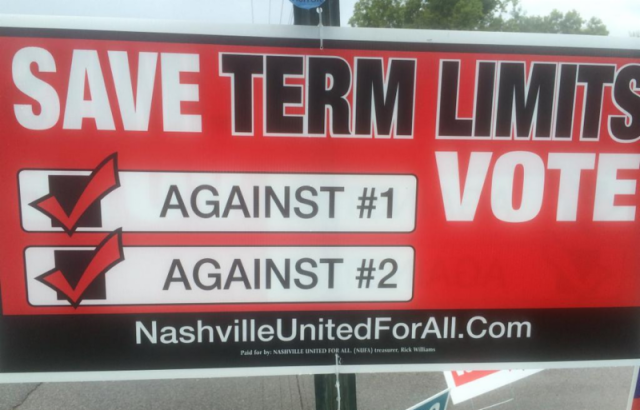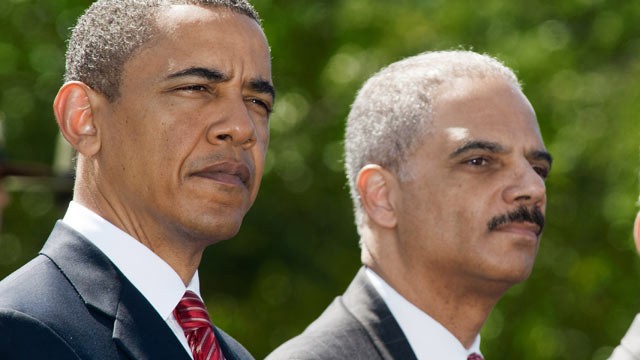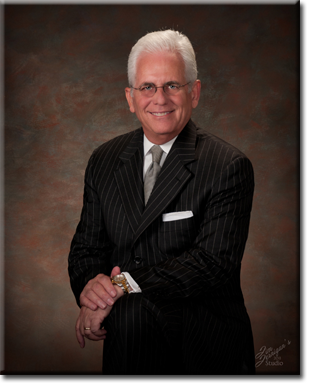The killing of five servicemen in Tennessee mobilized the entire security forces looking for a motive and wrongly identified the shooting as a Domestic Terrorism. For me the motive is as clear as a blue sky—it was an act of Islamic terror. The entire week starting on July 14, 2015 was full of killings, deceit, and destructions going on in America and around the world. It was an apogee of the ideology I called Soviet Fascism and its assaults on the West. The picture was presenting a system of political believes and all its deadly components acting simultaneously. I am writing about the ideology again, because 55 per cent of young people in America are planning to leave the country. I feel, it is my duty to educate them and tell them the truth about the political party called Democratic Party, which is responsible for the destruction going on in our country and throughout the world.
Liberals and Conservatives
The term “Classic Liberals” came to life as a representation of the people with strong principles and beliefs, embracing a certain philosophy in a conception of liberty. It describes and indicates various types of individual freedoms, such as religious liberty, political liberty, freedom of speech, right of self-defense, and the like. This is a very positive identification of the “Classic Liberals” in the history of the nineteenth century. They are for all the liberties plus they are the patriots of their country, pursuing national security along the path of the truth. They are self-sufficient and love the flag, country, and religion. I love them and share their ideas and feelings. I don’t like “Modern Liberals.”
The “Modern Liberals.” have usurped the honorable term of liberty that has nothing in common with their activities and agenda. Lacking a grasp of reality, they have always been soft on Soviet Socialism and now actually soft on Soviet Fascism. All the good words describing “Classic Liberals” belongs to the people who call themselves Conservatives, who are for SMALL government. They are self-sufficient, they love the flag, country, and religion. Contrary to them, “Modern Liberals” are apologist for a big government, controlling people and economy, as Obama has been doing during his entire presidency. They are using Stalin’s Political Correctness to do so in order to fool and mislead you.
The defrauding of the political names and their political titles had happened and this is the crux of the matter. I have some explanation of how it happened and proof that all negative development in our country has been caused by the ignorance of some and, perhaps, treachery of others within the “Modern Liberals,” we called them today Liberals or Leftist. I see a constant use of Stalin’s Political Correctness by them in both domestic and foreign affairs to deceive, fool and mislead people—a typical manipulation of the human mind.
In writing this series, I am trying to open up an avenue showing the way Socialism proceeds from a theory to reality, from the 19th to the 21st century. To a certain degree it is the avenue of politics and semantics from Karl Marx to Joseph Stalin. Semantics is a branch of Linguistics, it is the study of the word’s meanings and ways in which the meanings changed and developed. Stalin, by deceiving the world used it to create his own ideology of Socialism by preaching Marx’s postulates—the fraud, I have been presenting since the first article of this series. Stalin’s Political Correctness is the reflection and manifestation of his fraud to fool you during two centuries. Pay attention to Semantics—Social and Socialist are two completely different words: not all Social-Democrats in Europe are Socialists, some are.
Big Brother is Watching You
Eric Arthur Blair, who used the pen name George Orwell, was an English novelist, essayist, journalist and critic. It was around the 1930s and 40s, when he completed his brilliant book—1984. Living in the Soviet Union at the time, I couldn’t read it. The book was forbidden by the Stalinist regime. Coming to America, I was able to read it when my knowledge of English allowed it. And… I was stunned—that book was about my childhood and my life in the Soviet Union. The narrative of a communal apartment and its kitchen had described my exact life in Leningrad, and the smell of cabbage that has followed me since. The world classified the book as a fiction and satire, I would argue that– the book is much more than that.
All works of George Orwell presents a thoughtful and careful warning to the decent people of Western civilization. You wouldn’t argue that his warning is a thoughtful one, it is careful, because Orwell was writing and publishing his works at the time of Stalin’s butchery in Russia. I have an impression that besides the smell of cabbage, Orwell also grasped Stalin’s Political Correctness, which is a central issue of all his writings—a manipulated human mind. Fiction allowed him to create without a fear of being assassinated. Don’t forget, Trotsky was assassinated by Stalin’s order in the 1940s.
Orwell knew Stalin’s character and his connection to the Muslim culture and Islam. Using his knowledge, he is definitely addressing the upcoming generations and that is the reason, I am reporting about Stalin’s time as a child of Stalinism. Let me illustrate my thoughts by using George Orwell’s words, which will remind you of your own life in America today:
“In our age there is no such thing as ‘keeping out of politics.’ All issues are political issues, and politics itself is a mass of lies, evasions, folly, hatred and schizophrenia.”
This was said in 1930-40s—during Stalin’s time, when I had lived in Leningrad. Look at my identification of Political Correctness: “To indoctrinate us in the Stalinist ideology, an arsenal of different devices was used: lies, fraud, deceit, distortion, and fabrication, perjury, and so on to cover-up the crimes committed and substitute the promising result with a process…
“… Political Correctness is a Stalinist policy, driven by the political agenda, a skillfully crafted design and a long-term strategy of war against Western civilization and creation of One World Government.”
Do you grasp the resemblance with Orwell and the reason why I am writing about Stalinism?
A malignant and Ubiquitous Ideology of Stalinism
Never underestimate the power of a symbol: Symbol plays an extremely important role in history and in our lives today. Stalin was and is a mighty symbol of power in Russia today. Below is a quotation I took from a chapter in my book that shows Stalin’s role in the creation of the Chinese Communist State and Russia’s activities in the Middle East. Pay attention to a tremendous symbol of Stalin and his ideology of Socialism—it plays a crucial role in the 21st century of the world and that is the reason I dedicated all my writings to that exact topic. Remember, history repeats itself, please, see the beginning of the chapter The Red Menace: From China to Jihad, in What is Happening to America, written in 2006, p.145:
“In accordance with my habit, I would like to return to the chronology in the Kremlin’s Foreign Policy of the 1950s-1960s. The next target in the agenda after China was the Middle East—to control oil reserves and suffocate the West. It was Stalin’s idea. He was the first to acknowledge a new Jewish State in 1948, hoping for another satellite now in the Middle East. When Israel turned her face to the United States, the Stalinist foreign policy had drastically changed—the intelligence forces, a second echelon, came to achieve world domination by hook or by crook. Stalin had tremendous experience as a commissar for the nationalities in the country of more than one hundred different ethnic groups. He knew how to deal with them, and pitted them against each other—it was his paramount agenda. Now it was the Middle East’s turn to experience Stalinism.”
That means a total indoctrination and a process of radicalization by Stalin’s ideology in the countries of the Middle East for the last 65 years—as a result the ideology of Radical Islamism was born. If you want to know how it was done, please, read the above mentioned book and also The Russian Factor. Yet there is another reason to present Stalinism to the world and especially to the young Americans who planned to leave the country, it is that—Stalinism is Soviet Fascism. Many young people do not know anything about the Iron Curtain, Cold War, or the KGB activities. For them Russia has changed to the better after the collapse of the Soviet Union. Wrong! Nothing has changed in Russia, Stalinism is the ideology of the current Russia with the same agenda—destruction of Western civilization.
The leftists pretend not to know that. But, I hope, you remember Obama’s and Hillary’s reset with Russia in 2013-2014. Look attentively it is again the tactics of delays, which provide Russia with time to organize Iran’s nuclear deal, I believe the entire issue was created and highly coordinated by Russia, behind the scene through Iran’s Rev. Guard. Read my description of an inextricable connection of Russia and Iran to achieve the Russian agenda to change the balance of power in the Middle East, making its proxy a major force in the region, regardless of oil’s prices going down. Iran is a huge market for Russian arms and equipment’s, which will compensate losses in the price of oil.
Only understanding Russia’s role in current geopolitics, we can answer this question:
WHY IS OBAMA ABANDONING 70 YEARS OF U.S. NONPROLIFERATION POLICY?
Never mind the finer points of the bargain being struck with Iran.
“Since the beginning of the nuclear era, scientists have understood that the exact same technology could be used to produce fuel either for nuclear energy or for nuclear weapons. The two methods for producing nuclear fuel, uranium enrichment and plutonium reprocessing, therefore, became known as “sensitive nuclear technologies.” The United States has always opposed the spread of sensitive nuclear technologies to all states, including its own allies, and it should not make an exception for Iran.” Tablet, by Matthew Kroenig June 15, 2015.
The answer to the question is clear to me—the old Soviet/Russian policy 1950-1960 of inflaming the Middle East and instilling the Soviet style leaders is alive and well. Obama is a contemporary conduit of this policy and due to this policy the world is more dangerous today than ever before—Stalinism and its Soviet Fascism is working around the globe in the 21st century. Political Correctness is used by all parties involved: America, Iran, and Russia. Watch how the Obama administration makes incredible concessions to two global sponsors of international terrorism Iran and Russia. The way the liberals have been soft on the Soviet Union in the 20s century, is similar to the way they are collaborating with Putin’s Russia today.
Some observes compare the Obama nuke deal with Iran, and betrayal of Israel to Munich’s betrayal of Czechoslovakia by the West. Perhaps, yet I can tell you even more. If you compare the Obama deal to Clinton’s nuke deal with North Korea, you will be surprised—they are identical. I have a suspicion that both documents had been designed by the same group of people. I haven’t checked it, because I believe that both have been designed by Russians. Do you remember the Russian military document dated 1955? The Soviet Academy of Science had produced the research. I am afraid that both deals with Korea and Iran have the same master- architects in the best traditions of Soviet Fascism.
In addition to that, I’d like to make another two points: Obama sold Ukraine to Russia as well. Have you seen the tactic of delay and procrastination in helping Ukraine? And the second one: it was Clinton, who did two things to the contrary to the American interests in 1994—he made nukes deal with North Korea and
prohibited carrying arms in the military recruit’s stations. Please, consider the results of both and many other Clinton’s “achievements” in 2015. Maybe infiltration of Soviet Fascism to the American soil had begun much earlier?
What does Jane Harman know about Soviet Fascism? I ask about Jane Harman because I watched her on the Fox channel in the Sunday Show, of July 19, 2015. I was surprised that the incompetent Democrat was chosen to answer the questions. I was even more surprise when she became a Director of the Center. Watching her as a top Democrat on the House Intelligence Committee I knew how poor her knowledge of Russia was and the assignment to lead the Woodrow Wilson Center disappointed me. I am not alone having a negative opinion of her. Read what another person thinks about her and the Center.
“I wrote that last year in two exposés: “The Selling of the WWC” and “The WWC Desecrates its Namesake’s Legacy.” They revealed that the Washington, DC based Wilson Center is violating its Congressional mandate and is up to its neck in tainted corporate cash. A leading Congressman, a Wilson family descendant, citizens’ groups, and many others agreed. One prominent journalist called the WWC “a global joke.”
The Marriage from Hell: Jane Harman and the Woodrow Wilson Center
By David Boyajian / January 9th, 2012
I am a grantee of the Woodrow Wilson Center and due to that, I have a connection with other professors who were researching the Soviet Union and Russia in their respective universities. They informed me that since Obama’s presidency the money for research of Russia or the topics connected to Russia are not available.
If you read the whole article, you will grasp my concept of the Obama/Putin joint venture. Yes, the Woodrow Wilson Center is “a global joke” and Obama wants to make all university studies of Russia a joke, a global one. As you can see it is something more than only concessions to Iran—it is capitulation to Soviet Fascism. All written is the results of multifaceted activities of American Democratic Party working in cahoots with Russia, the major sponsor of Global Terrorism. The leadership of the Party is making America blind, deaf, and defenseless.
I can give you a list of the Democratic Party’s activities against American interests, which are helping Russia in WWIII. This war is a forceful application of the ideology by violence. The recent sanctuary regions are the direct fronts against America. Show me the logical reason for the sanctuary regions at the time of war. There is none. Moreover, look at the hundred cities allowing protections for the illegal aliens, who violated our law. In the last year they killed 125 people. Look at those regions and cities, they are all runs by the Democrats against American interests. The brother of recently killed Kate Steinle is right: “The system failed my sister and evil killed her.”
Another example is the Planned Parenthood harvesting for aborted baby’s bodies parts to sell. Just listen to the doctor describing the process and your heart will bleed. Don’t you sense a smell of German Fascism in the 1930-40? I do. All Planned Parenthood centers are run by the Democrats. Of course, there are some decent Democrats, but the leadership of the party is adhered to the ideology of Soviet Fascism and to prove the fact, I am writing this column and making a logical case for you. Unfortunately, the Republicans are not using that major fact, they also don’t know Soviet Fascism and the difference between Social and Socialist.
“As we have seen with the last election, resulting in a Republican-controlled House and Senate, things in Washington didn’t change at all. The socialist agenda continues, regardless of which party is in control. What is needed is for all voters who are concerned with the destruction of their country from within to recognize who the socialists are. If we are ever to really turn things around politically, we must vote for candidates who believe in the constitution as the basis of law and uphold traditional American values and morals.”
Read more.
I am afraid that some Republicans cannot assess correctly importance of the immigration’s issue. It is one of the major fronts in WWIII. The illegal alien situation has been a major problem festering in America for decades, yet “most Presidential candidates are afraid to address the issue because of the established political correctness machine in Washington.” Yes, I agree and addressed the topic many times. Look at Trump, he is the first candidate making the real discussion on the issue and none of the Republican candidates vigorously supported him, they have no idea of Soviet Fascism and WWIII—without this knowledge it is impossible to win the Presidency.
Trump actually exposes Republican’s weakness; they like the incompetent medical doctors are fighting the symptoms not the disease and The Red Menace grows and is fighting us—the killings keep going on. To win the Presidency the identification of the enemy and its moduse operandi is imperative– Knowledge of Soviet Fascism is a must.
I will end the column, the same way I ended the preceding one: A compromise is not a dirty word, a compromise with Soviet Fascism constitutes Treason.
To be continued at www.simonapipko1.com.



